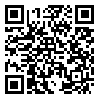BibTeX | RIS | EndNote | Medlars | ProCite | Reference Manager | RefWorks
Send citation to:
URL: http://rehabilitationj.uswr.ac.ir/article-1-834-en.html
2- Tabriz University of Medical Sciences, Tabriz, Iran. ,
Objective: Neuromobilization techniques have been recently put forward in physiotherapy of carpal tunnel syndrome. The aim of this study was to assess the effect of neuromobilization on different aspects of evaluation including subjective, physical, and electrophysiological findings in CTS.
Materials & Methods: In this randomized clinical trial study, 20 patients with carpal tunnel syndrome (32 hands) were assigned into two groups treatment and control group. In both groups, the patients received the physiotherapy modalities including the rest splint, TENS, and therapeutic ultrasound for 4 weeks. In addition to the physiotherapy modalities, the patients in treatment group received the neuromobilization techniques. The symptoms severity scale, visual analogue scale, functional status scale, Phalen's sign, median nerve tension test, and median nerve sensory and motor distal latency were assessed. Data were analyzed by Kolmogrolf-Sminolf, Paired T and Independent T and Mc nemar tests.
Results: There was a significant improvement in symptoms severity scale, visual analogue scale, median nerve tension test, and Phalen's sing in both groups (P<0.05). However, the functional status scale (P<0.001) and median nerve motor distal latency (P=0.015) were significantly improved only in the treatment group who received the neuromobilization. There was no significant difference between two groups in any other parameters (P>0.05), except that the median nerve tension test (P<0.001) and functional status scale (P=0.004) was improved in the treatment group (P=0.023).
Conclusion: Physiotherapy modalities and neuromobilization itself have positive effects on hand symptoms and the finding of physical examination. Thus, we suggest adding the neuromobilization techniques into the physiotherapy modalities in patients with carpal tunnel syndrome.
Received: 1/06/2011 | Accepted: 10/03/2013 | Published: 10/03/2013
| Rights and permissions | |
 |
This work is licensed under a Creative Commons Attribution-NonCommercial 4.0 International License. |





